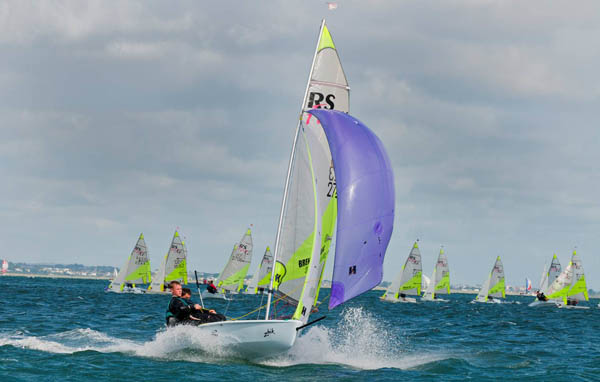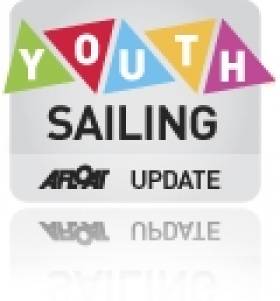Displaying items by tag: Charlie Darling
Record Attendance at the 2010 RS Feva Nationals
Conditions were varied over the weekend. Friday was a mixture of moderate and light airs but Saturday brought fresh north-westerly winds which tested the fleet and organisers. Sunday's sailing had ultimately to be abandoned. However, by that time a championship series had been completed and competitors enjoyed a sun-drenched forecourt where dancing and swimming replaced racing for the day.
The winners of the National Championships and Open Competition were Brendan Lyden and Marc Cudmore from RCYC followed by Vikki Cudmore and Amy Harrington also from Cork. Two of the UK visitors , Robert and Emma Loveridge from Draycote Water SC and Morgan Peach and Herbie Harford from Royal Torbay YC took third and fourth respectively . Two more RCYC boats, Richard Roberts and Eoin Lyden , and Dermot Lyden and Peter Stokes finished fifth and sixth.
The reigning World Champions, Owen Bowerman and Charlie Darling finished tenth, while the top finishing host club boat, Amelia O'Keeffe and Annabel Elliott, from RSGYC, came twelfth.
Seventeen Irish boats, which all also competed in the 140-boat Feva Worlds in France in July, were present at the Nationals this weekend. They were joined by other fleets from around the country; the RCYC, Greystones, Cove, Howth, NYC, RIYC, Lough Ree and Rush.
Thank you to all volunteers and staff of the Royal St George Yacht Club who worked tirelessly over the three days, especially Jack Roy, the most experienced of the International Race Officers based in Dun Laoghaire, who ensured racing - when weather permitted - went without a hitch.






























































